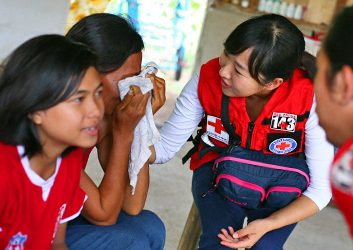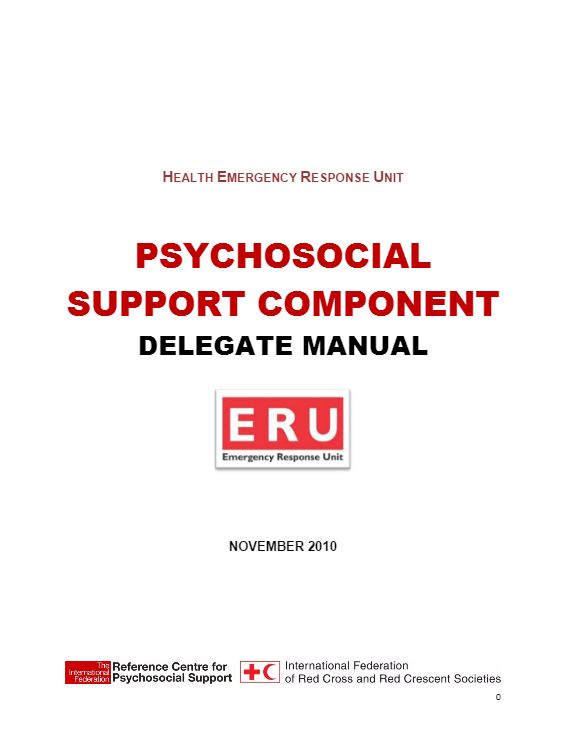The regional perspective
Psychosocial support is an integral part of the IFRC’s emergency response. It helps individuals and communities to heal the psychological wounds and rebuild social structures after an emergency or a critical event. It can help change people into active survivors rather than passive victims.
Early and adequate psychosocial support can:
- prevent distress and suffering developing into something more severe
- help people cope better and become reconciled to everyday life
- help beneficiaries to resume their normal lives
- meet community-identified needs
The need for community-based psychosocial support in crisis response and development work has become increasingly clear, particularly as we have watched major operations such as the 2004 Indian Ocean tsunami, Typhoon Haiyan, known as Super Typhoon Yolanda in the Philippines, was one of the most intense tropical cyclones on record, which devastated portions of Southeast Asia, particularly the Philippines, on November 8, 2013 and subsequent emergency responses. Psychosocial support empowers individuals and their communities to tackle emotional reactions to critical events and also creates community cohesion essential for adaptation, transforming problems into opportunities for sustainable progress and moving forward. Psychosocial programmes, when planned and implemented correctly, can help prevent an emergency from turning into a disaster. As such, it is vital in all Red Cross Red Crescent work.
Although the benefits of appropriate psychosocial support programmes and activities have become more clear, we still need to work with community practitioners and volunteers in grass root levels to reach more vulnerable populations. The International Federation, through its Reference Centre for Psychosocial Support (PS Centre), has a responsibility to ensure that capacity is built, and that appropriate support reaches those who need it most.
Introduction to Psychosocial Support
45 minutes – UNICEF
Public Health: Mental Health and Psychosocial Support
1 hour
Restoring Family Links (RFL) & Psychosocial Support (PSS) - Module 1: in Emergencies
1, 5 hours
Restoring Family Links (RFL) & Psychosocial Support (PSS) - Module 2: Working with Children
1 hour
e-mail: Regional Health Officer, Dr. Pornsak Khortwong, at pornsak.khortwong@ifrc.org
Related videos
Guiding Documents
- IFRC Psychological Support Policy
- Psychosocial Interventions: A handbook
- Community-based psychosocial support: Participant’s book
- Community-based psychosocial support: Trainer’s Book – A training kit
- The Children’s Resilience Programme: Psychosocial support in and out of schools: Understanding Children’s Wellbeing
- The Children’s Resilience Programme: Psychosocial support in and out of schools: Facilitator handbook 1, Getting Started
- The Children’s Resilience Programme: Psychosocial support in and out of schools: Facilitator handbook 2, Workshop Tracks
- The Children’s Resilience Programme: Psychosocial support in and out of schools: Programme Manager’s Handbook
- The Children’s Resilience Programme: Psychosocial support in and out of schools: HIV, AIDS and ARVs Educational Cards.
- Caring for Volunteers: A Psychosocial Support Toolkit
More Resources
![]()





Hello, I am Chiyuki form the Japanese Red Cross. I would like to ask if you have AP network for PSS, it would be great!